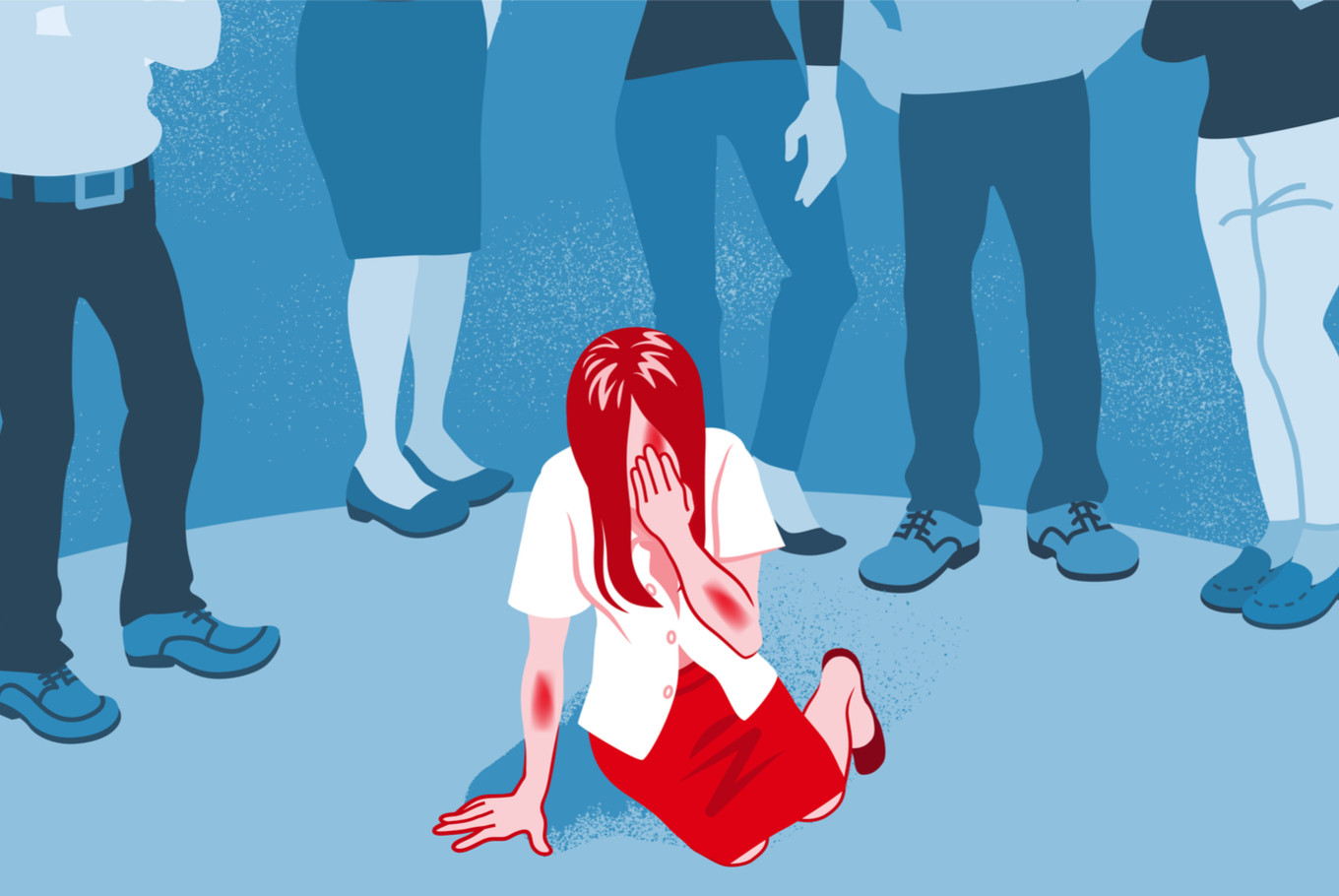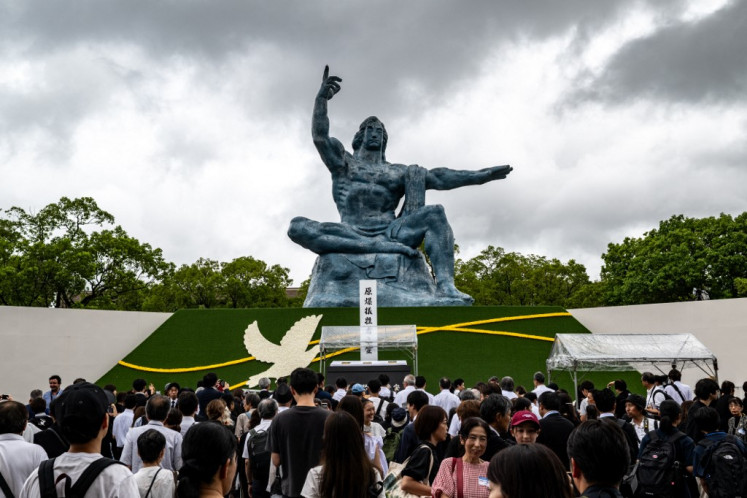Popular Reads
Top Results
Can't find what you're looking for?
View all search resultsPopular Reads
Top Results
Can't find what you're looking for?
View all search resultsVictim blaming obvious no-no. What about victim protection?
Change text size
Gift Premium Articles
to Anyone
W
hen I was about 14, I had a Japanese comic book series titled Pop Corn(original title Seito Shokun! ), which was quite dear to me. The popular translated series told the story of a teenager, Kitashiro Naoko, or Nakki, and her friends. In one story, one of Nakki’s close friends, Konishi Hatsune, was raped by a stranger.
Hatsune became quiet; she was humiliated because neighbors were talking about her pitifully. One day, the brother of her friend Iwasaki Hajime, whose name was Iwasaki Mamoru, visited her with the intention of accompanying her to the police station to report her case, but Hatsune declined politely.
An angry Mamoru thought the crime should be reported so that the perpetrator could be arrested. Hatsune then cried, telling Mamoru that if he wanted to be a true friend he should let the matter go. Hatsune’s mother threw Mamoru out of the house, wanting to protect her daughter from prying eyes and even more vile gossip.
Nakki visited Hatsune shortly after and convinced her to go to the police and report her case. Hatsune eventually agreed. All’s well that ends well, as Hatsune found love and eventually said yes when Mamoru asked her to be his wife.
Hatsune’s mother’s logic in the story bothered me deeply. Hatsune was her only child. I thought she should have dragged Hatsune, along with Mamoru, to the police station right away and report the rape.
However, now that I am a mother to a daughter, I can relate to her maintaining the child’s privacy. I can even see the point of settlement beyond legal measures of rape cases for victims who see it as their way to move on; to live life again after something of theirs is taken away forcefully against their will, as if part of them abruptly died.
Yoko Shoji drew and wrote Seito Shokun! in 1977. Rape cases are still prevalent, even in one of the world’s safest countries. What was not there 42 years ago was social media, netizens and social justice warriors with their war cry: “stop victim blaming”, which more often than not brings exposure, and pressure, to the victim. I agree wholeheartedly that we should not blame victims for their excruciating misery caused by others who think they can do anything to impose power over the powerless.
In November 2018, Gadjah Mada University (UGM) was put under the microscope after an investigative report was published in its student publication Balairung, detailing the sexual assault of one of its students, AN, known under the pseudonym Agni. Agni accused one of her fellow students, HS, of sexually assaulting her in June 2017. Like Agni, HS was completing a community service project (KKN) in a Maluku village.
Agni immediately filed a report with university officials. HS’ participation in the program was cut short. But Agni stated she had also been blamed for the incident and told to “repent” by a university official. Netizens expressed outrage and a number of organizations urged the university to take legal action against the accused. UGM rector Panut Mulyono apologized for the university’s foot dragging in handling the case.
But on Monday, Panut announced that the victim, the perpetrator and the university had agreed to settle the case out of court. “HS has expressed regret, admitted his wrongdoing and begged AN for forgiveness […] in front of UGM [officials],” said the rector, who signed the agreement together with Agni and HS.
With the results of the rape investigation remaining undisclosed, the “settlement” only raises more questions about the university’s clear stance on sexual abuse.
When my anger at this report finally subsided, I asked myself: Is what Agni going through something similar to what Hatsune experienced? She’s just a comic character but her story could be real. Were Agni’s family members involved in her decision and do they share responsibility for the settlement? Agni needs to keep on living, albeit with a deep mental scar. Is it really wrong to choose to settle out of court, if indeed it was her choice?
As a mother of a daughter, I can’t help but question: If such a thing ever happens to my daughter (knock on wood), would I unleash my social justice warrior side, expose her to the media and whoever wants to help, and drag her to the police station to file a report?
In 2017, The Jakarta Post published a special report on the performance of the National Police’s Women’s and Children’s Protection (PPA) units across the country. The units aim to provide protection to women and children who endure sexual abuse. Yet some of the officers’ questions on whether the reported rape was by any chance consensual sex baffled those initially seeking justice. Even more than being humiliated, victims fear imprisonment for slander, as several cases show, if they are perceived to have failed to prove their case.
Protecting the victims holds as much importance as defending them.
Meanwhile, lawmakers are super slow in deliberating the sexual violence bill, with very public rejections from several quarters saying the bill endorses adultery. I pray hard for the bill to be passed; it has taken too long and there have been too many victims.
Also, if indeed perpetrators are brought to trial, will their sentence really serve justice to the victims?
Victim blaming must stop.
Rape must stop.











